Why 2017 could be the most political year of the Academy Awards
Hollywood insiders look back at some of the most politically-charged speeches.
— -- For decades, going to the movies has given people a two-hour escape from the daily news cycle. But at the Academy Awards -- the pinnacle event in Hollywood -- winners on occasion have used the platform to bring attention to political issues.
ABC News film critic Peter Travers predicts this year will "be the most political year of the Academy Awards ever."
When did the Oscars become so political?
1973
Hollywood insiders often point to the 1973 Oscars as the precursor to political speeches.
That year Marlon Brando asked Sacheen Littlefeather, the president of National Native American Affirmative Image Committee, to attend the Oscars on his behalf.
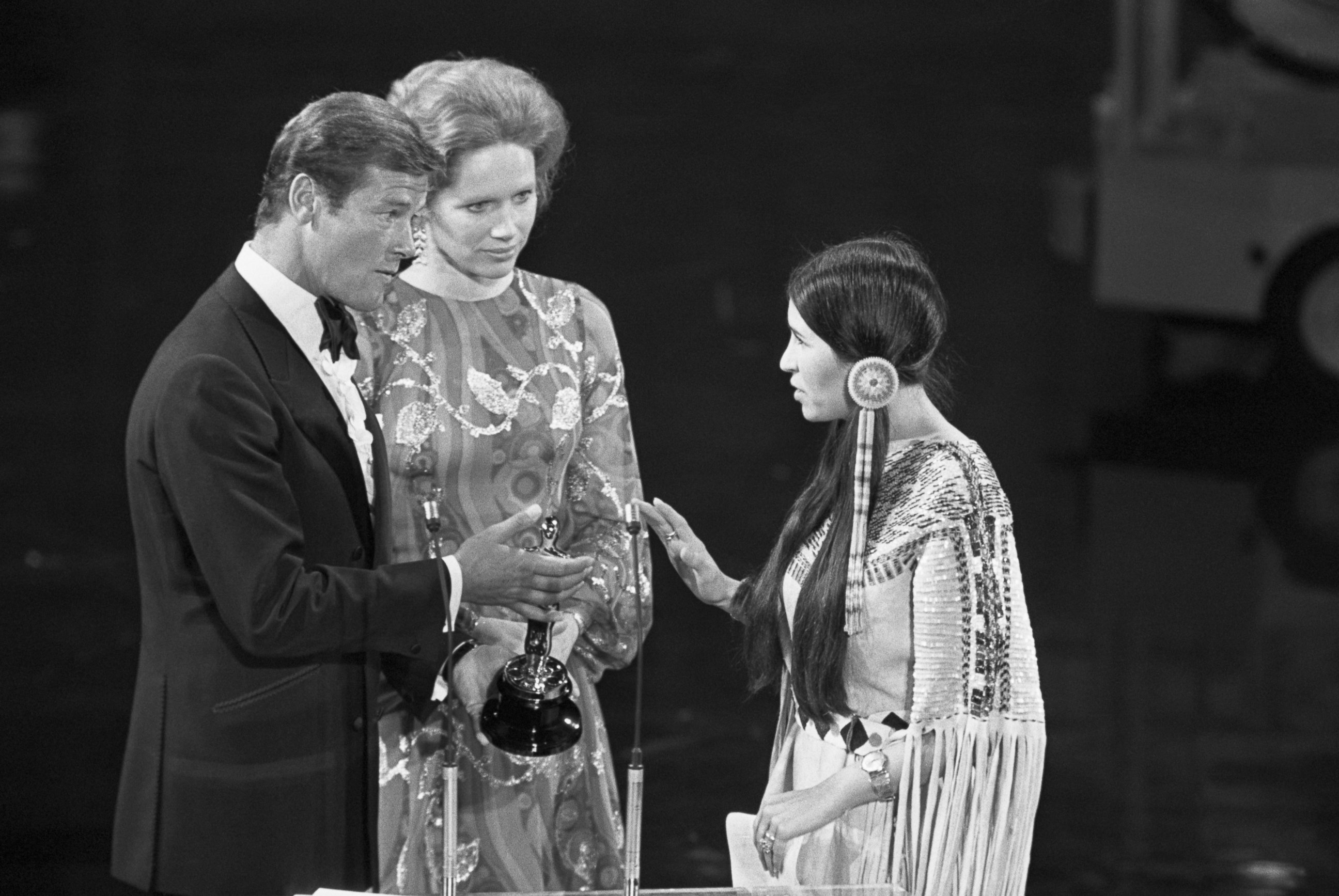
Littlefeather told the audience "that [Brando] very regretfully cannot accept this very generous award" because of "the treatment of American Indians today by the film industry" and "recent happenings" at Wounded Knee Creek, on the Lakota Pine Ridge Indian Reservation in South Dakota. Weeks before the awards show, protesters at Wounded Knee called for the resignation of tribal council president Richard Wilson, whom they accused of corruption, and for the U.S. government to reexamine treaties with Native Americans.
Her comments were met by applause and boos. She said she hoped her speech wouldn't "intrude" on the night.
After Littlefeather's speech, "everybody at the time was wildly upset" because they felt politics and Hollywood should be separate, Travers said.
1978
In 1978 Vanessa Redgrave was nominated for best supporting actress for her role in "Julia," in which she played an anti-Nazi activist. Redgrave, an outspoken supporter of the Palestinians, had narrated and helped fund the documentary “The Palestinian” which supported a Palestinian state, according to The Associated Press.
When Redgrave stepped on stage to accept her award, she praised the Academy for its support.
"I salute you ... and I think you should be very proud that in the last few weeks you've stood firm, and you have refused to be intimated by the threats of a small bunch of Zionist hoodlums," Redgrave said to the crowd as the Academy members booed.
Without pausing, Redgrave continued, "Whose behavior is an insult to the stature of Jews all over the world and to their great and heroic record of struggle against fascism and oppression."
"And I salute that record, and I salute all of you, for having stood firm and having dealt a final blow against that period when Nixon and McCarthy launched a worldwide witch-hunt," she said, which was met with more boos. "Against those who tried to express in their lives and their work the truth that they believed in. I salute you and I thank you and I pledge to you that I will continue to fight against antisemitism and fascism."
When Redgrave was first nominated, she was "opposed very aggressively by Jewish groups because of her support of Palestinians," said Akira Mizuta Lippit, vice dean of faculty at the University of Southern California's School of Cinematic Arts.
Supporters of the Jewish Defense League picketed outside the awards ceremony and burned an effigy of Redgrave.
"There was a large protest," Lippit told ABC News. "And she spoke out against the protest and praised the Academy for moving forward with her nomination."
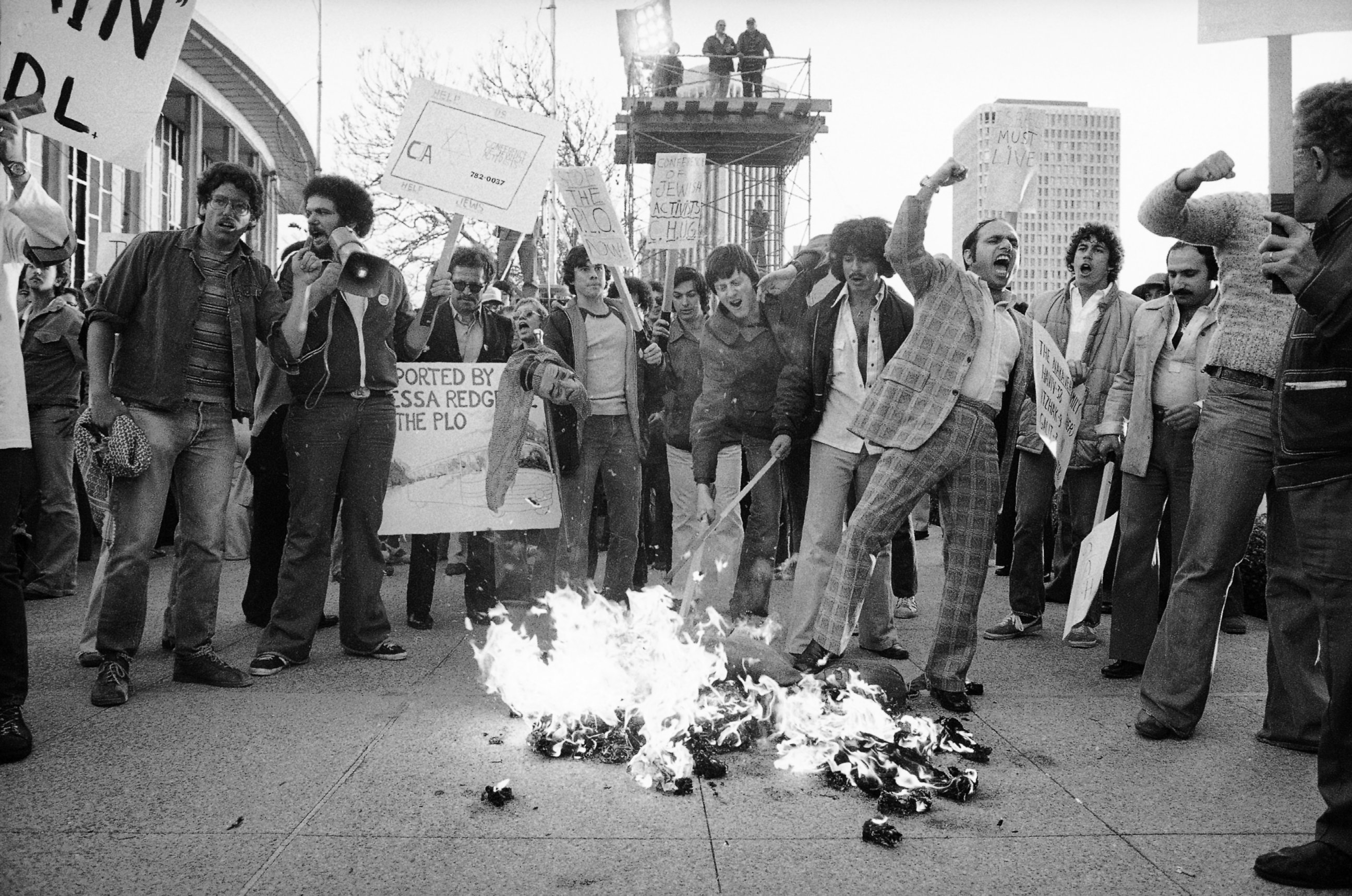
Travers said Redgrave "called it as she saw it ... she called people 'hoodlums' -- she was angry, there were protesters outside" and she resented that they were carrying placards against her because of her position on Palestinians.
But "there was tremendous backlash at the time for her having anything political to say," Travers said.
Lippit said Redgrave faced so much backlash after that speech because her fellow Academy members thought it was "inappropriate to take a political stance at a ceremonial event like this."
But "in many ways [it] served as a catalyst because it really opened up the question ... what are the limits?" he added.
1999
Director Elia Kazan was given an honorary Academy Award in 1999, decades after his involvement with The House Un-American Activities Committee (HUAC) -- a group in the 1950s that investigated Americans suspected of having Communist ties.
If an actor or writer proffered names of people who were involved in "leftist, socialist activities," Lippit explained, that person "would be allowed to continue and resume" their career. If someone refused, that individual could become blacklisted from Hollywood. Many, like Kazan, likely provided names to protect themselves, Lippit said.
Kazan never apologized for his actions and "became a pariah for many people," Lippit said. The honorary Academy Award "was a big debate" that "really divided the community."
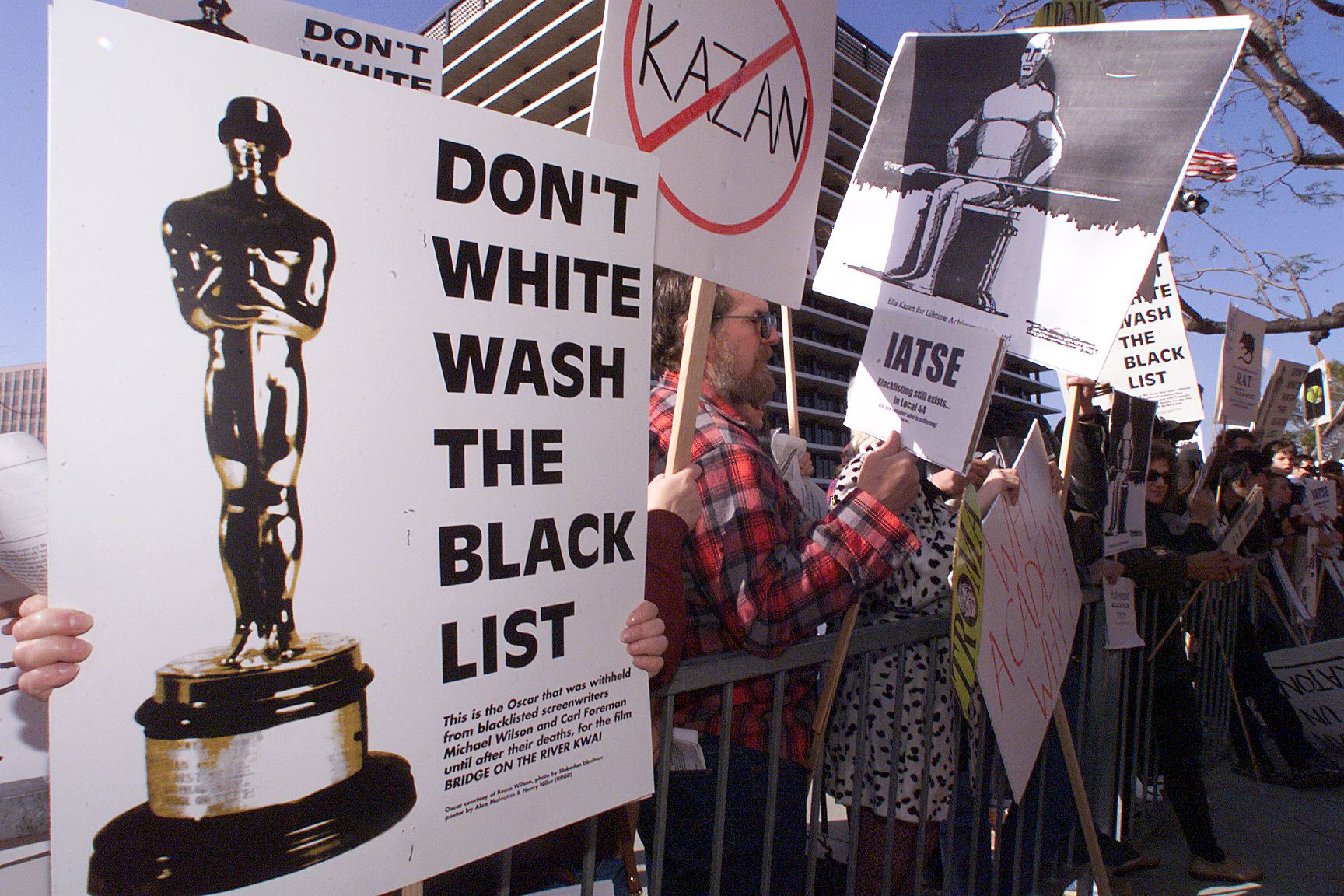
Some, like Warren Beatty, were supportive, Lippit said, and "felt [Kazan] should be recognized for the work he accomplished as a director." Others, however, felt that "you could not forgive a man who had betrayed others in the profession in order to save himself."
Lippit said Kagan's situation presented an interesting dilemma in Hollywood.
"It really raises the question: if one can completely quarantine politics from entertainment and whether that's even a valid question. Is entertainment, as we define it, something that needs to be kept strictly segregated from the social, political world ... when in fact entertainment reflects in many cases the world that we live in, or the world that we have lived in," he explained.
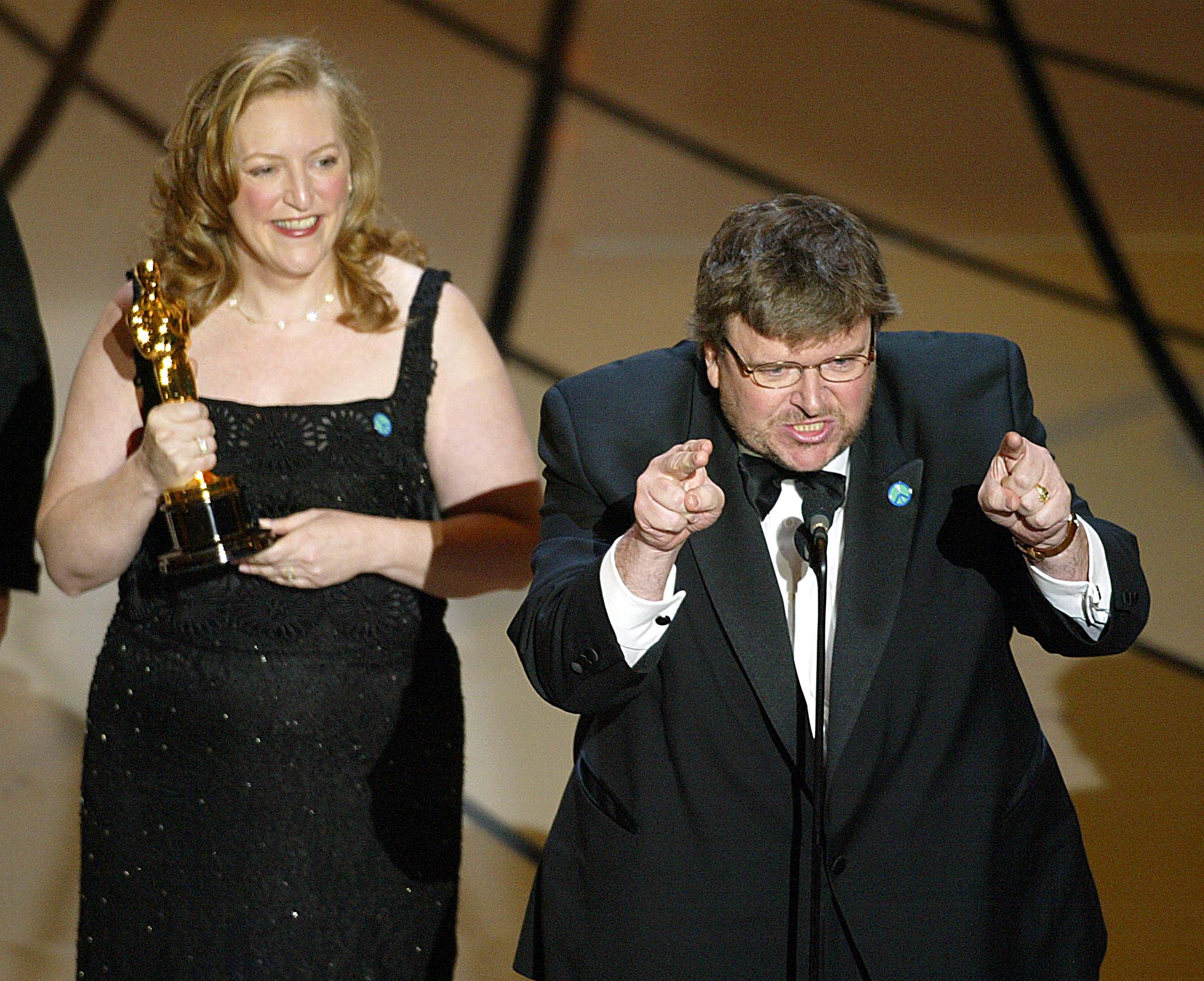
In 2009, when Dustin Lance Black won best original screenplay for "Milk," he said the story of gay rights activist Harvey Milk gave him hope as a teen.
"If Harvey had not been taken from us 30 years ago," Black said in his speech, "I think he'd want me to say to all of the gay and lesbian kids out there tonight who have been told that they are less than by their churches, or by the government, or by their families, that you are beautiful, wonderful creatures of value. And that no matter what anyone tells you God does love you, and that very soon, I promise you, you will have equal rights federally across this great nation of ours."
More recently climate change has become a hot topic at the Oscars.
Best actor winner Leonardo DiCaprio pleaded for action on climate change in his 2016 speech.
"Making 'The Revenant' was about man's relationship to the natural world -- a world we collectively felt in 2015 as the hottest year in recorded history. Our production needed to move to the southern tip of this planet just to be able to find snow," DiCaprio said. "Climate change is real. ... Let us not take this planet for granted, I do not take tonight for granted."

What to expect on Sunday
This year, Travers predicted Mahershala Ali, who is Muslim, will get political if he wins for best supporting actor.
And he may not be the only one. If Viola Davis nabs an Oscar for her performance in "Fences," she "isn't going to mince words about what's going on in her head," noted Travers.
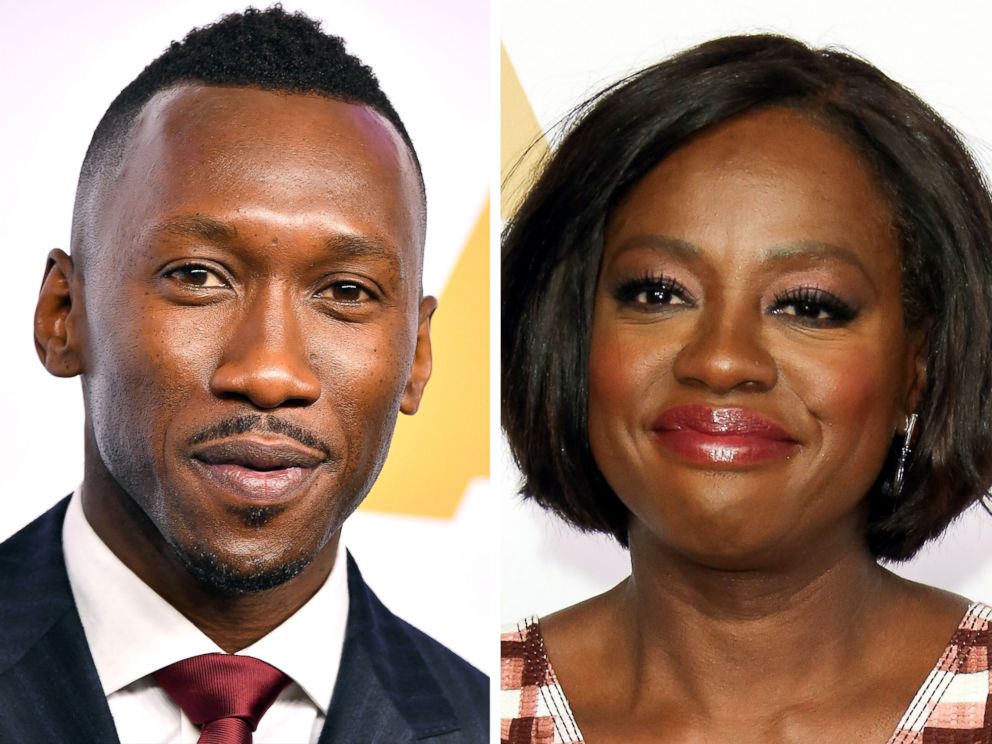
Moreover, Travers believes this year will "be the most political year of the Academy Awards ever" for two reasons: the Trump administration and the #OscarsSoWhite backlash from 2015.
At the Golden Globes in January, Meryl Streep, in her acceptance speech for the Cecil B. DeMille Award, went on the attack against Trump, calling him out (though not by name) for his treatment of a disabled reporter and the press.
Trump later responded by tweeting that Streep was "over-rated" and a "flunky" of Hillary Clinton.
Travers said the criticism of Trump by Hollywood wasn't "name calling."
"They all seem to have an agenda," he said.
Besides tension with Trump, Travers said the Academy is "dealing with their own two-year criticism for not recognizing minorities in any of those major awards."
Academy of Motion Picture Arts and Sciences President Cheryl Boone Isaacs addressed the criticism by making changes to membership policies, which would, she hoped, create more opportunities for minorities.
Memorable moments from past Oscars


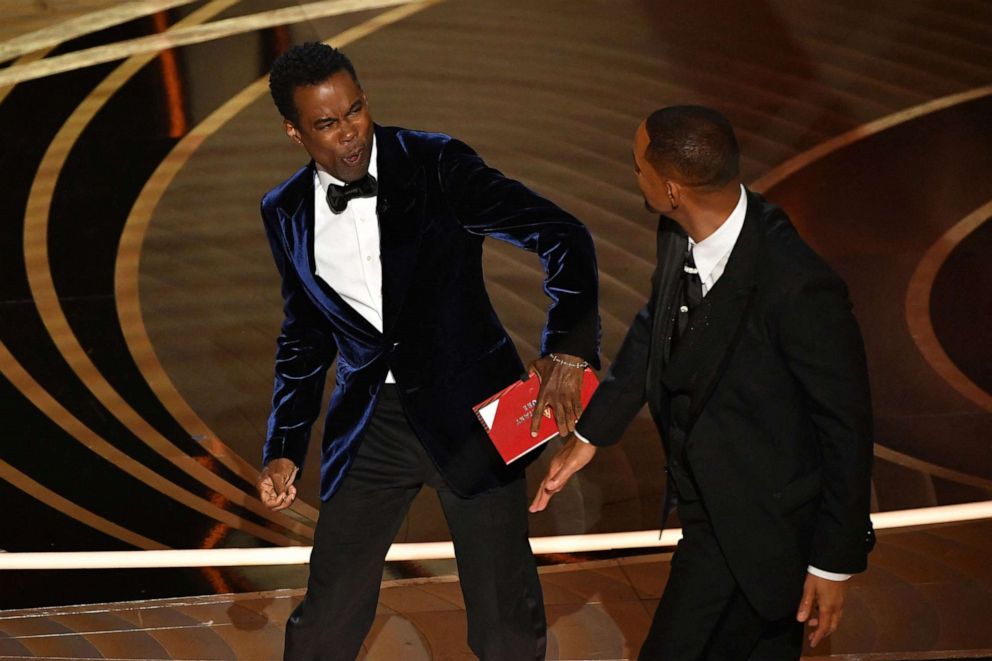
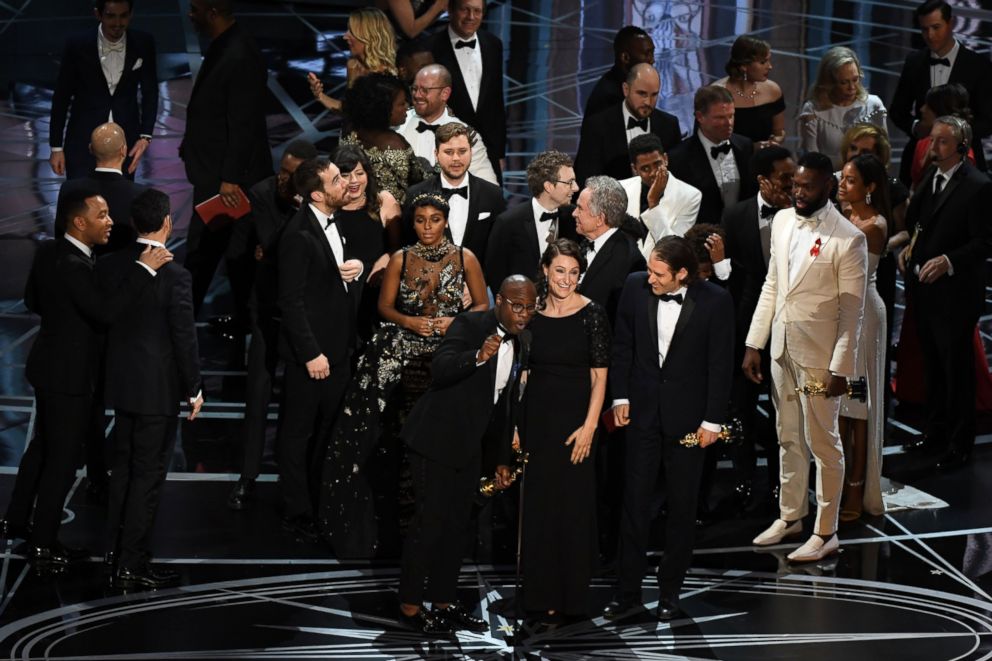
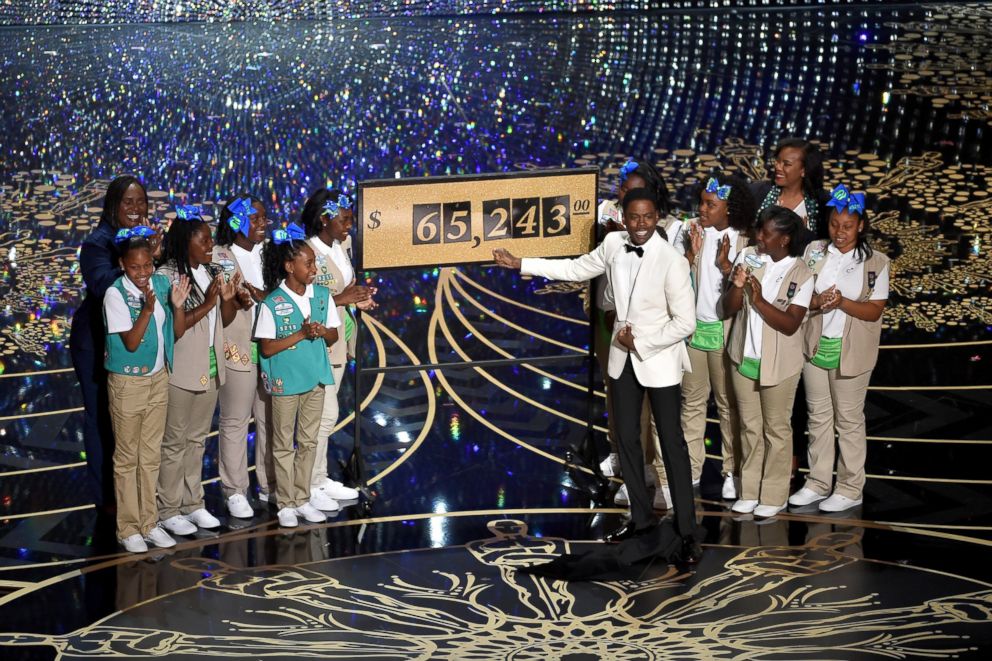
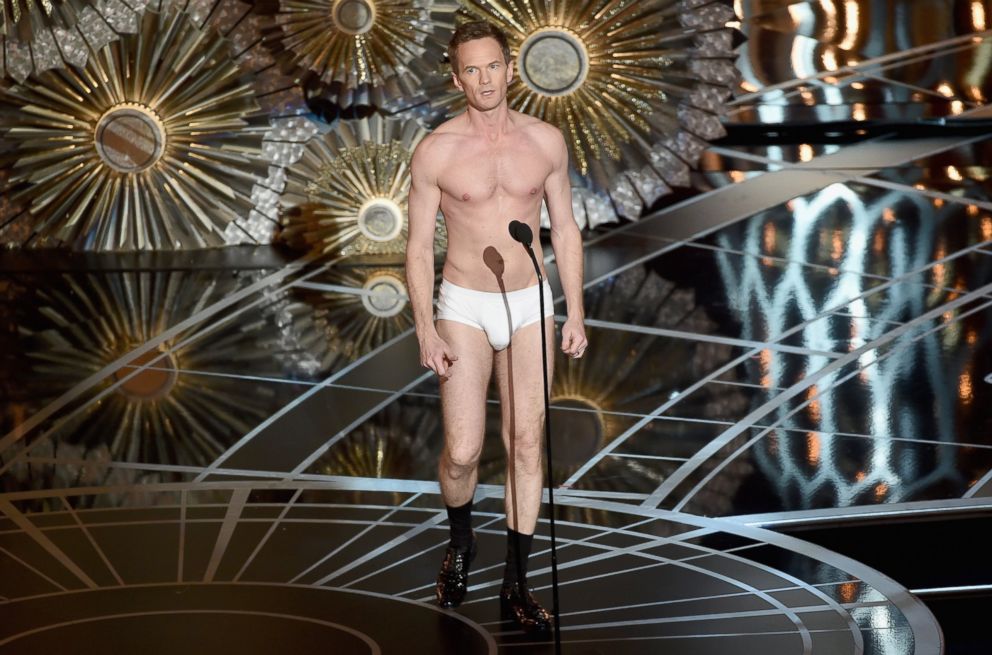
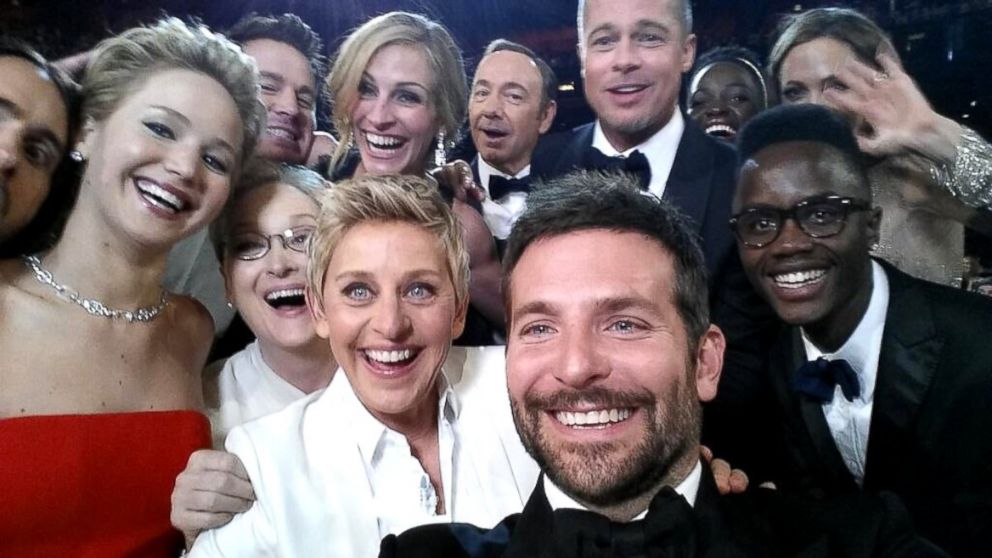
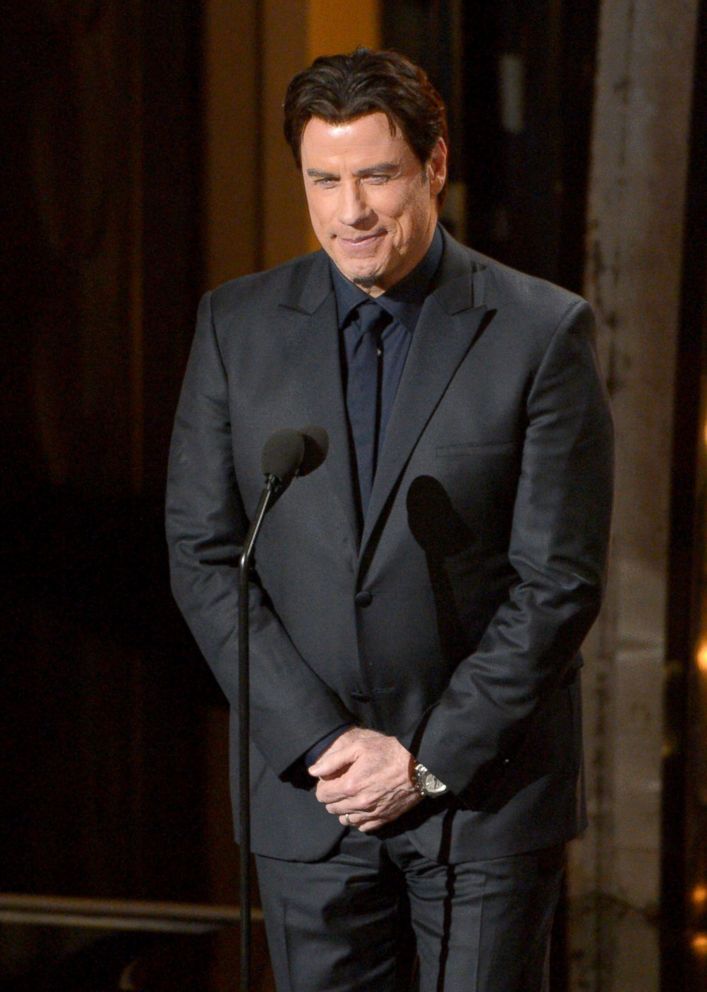
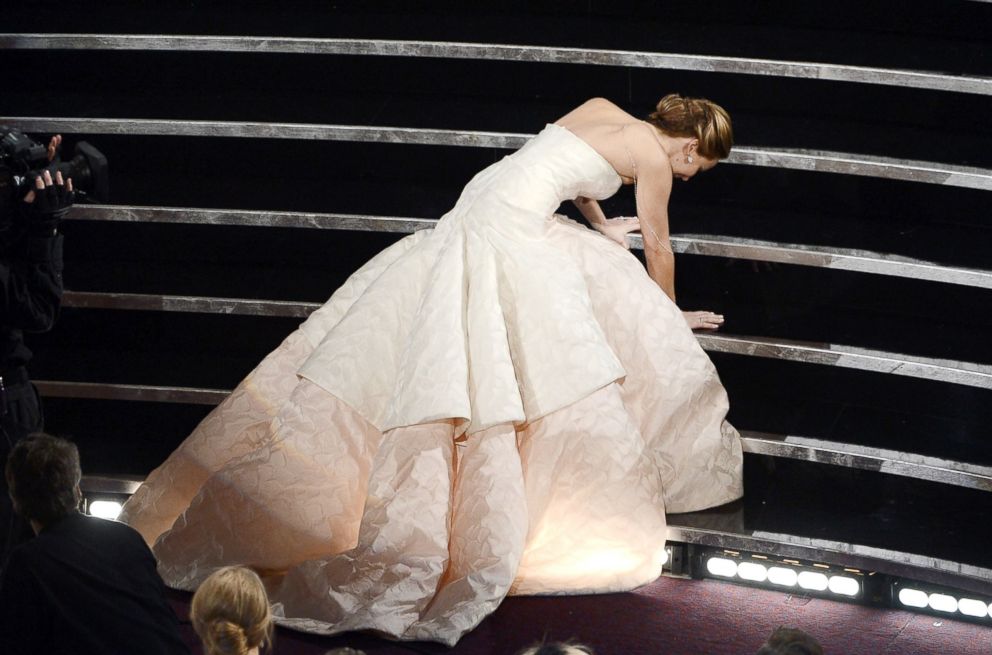
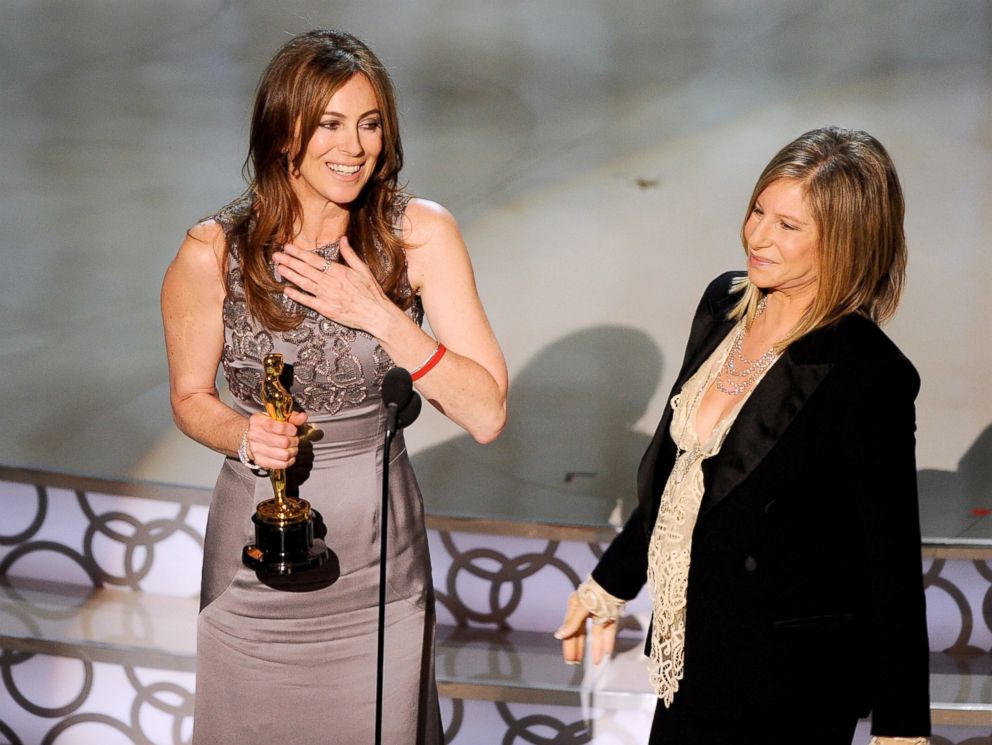
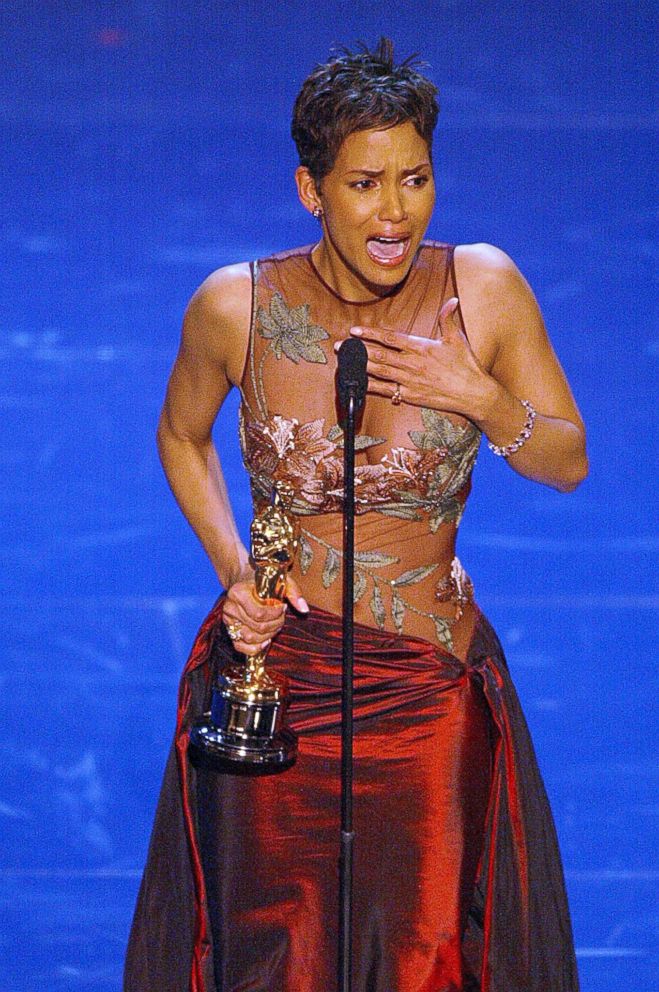
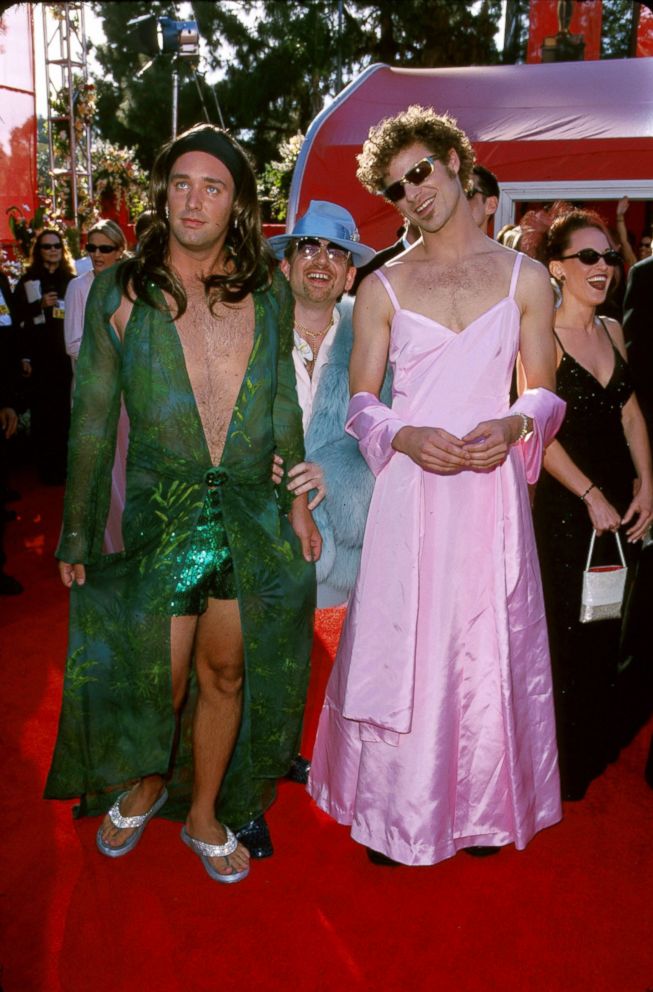
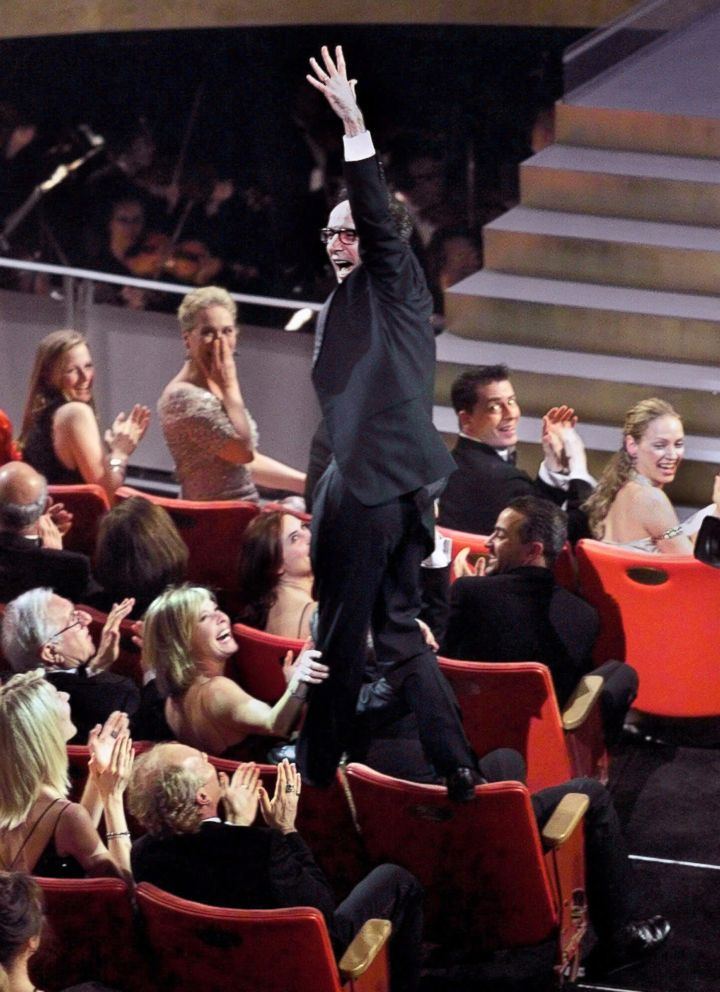
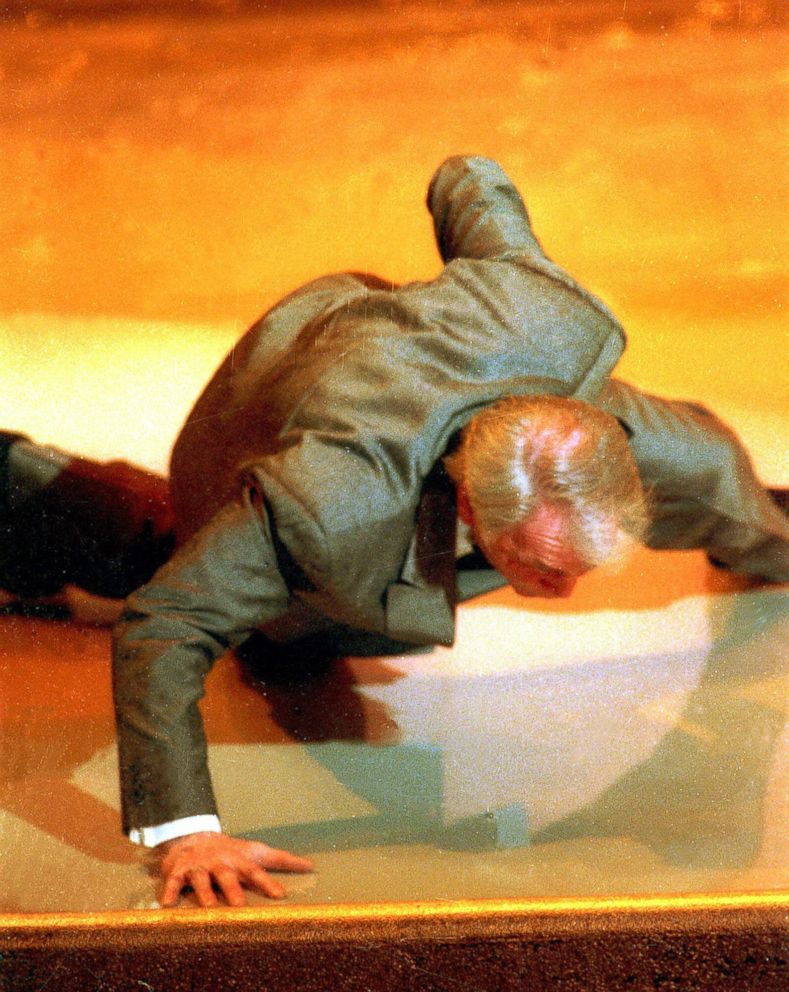
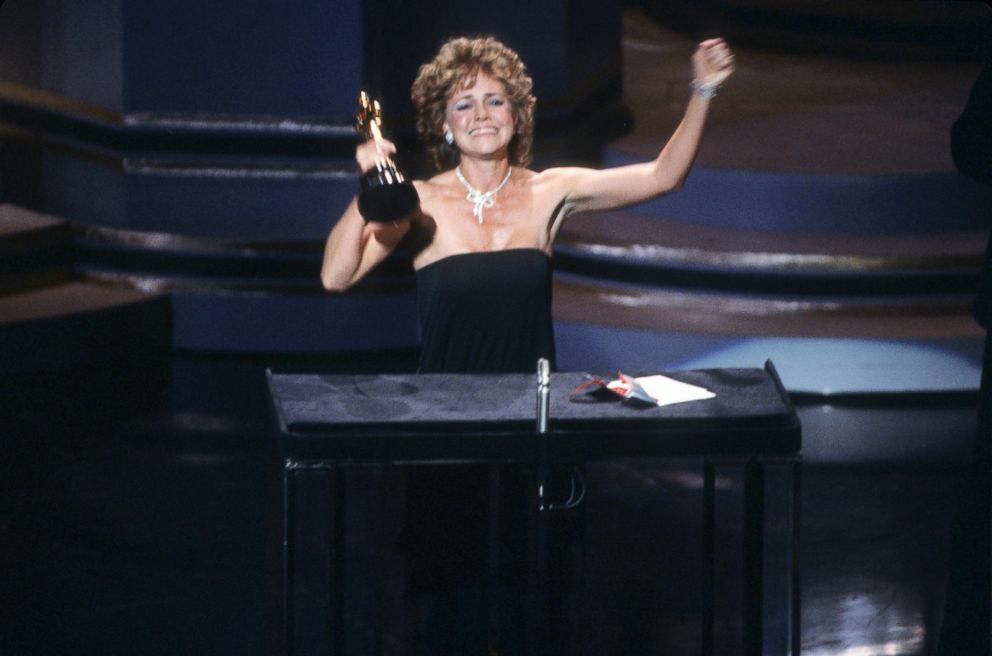
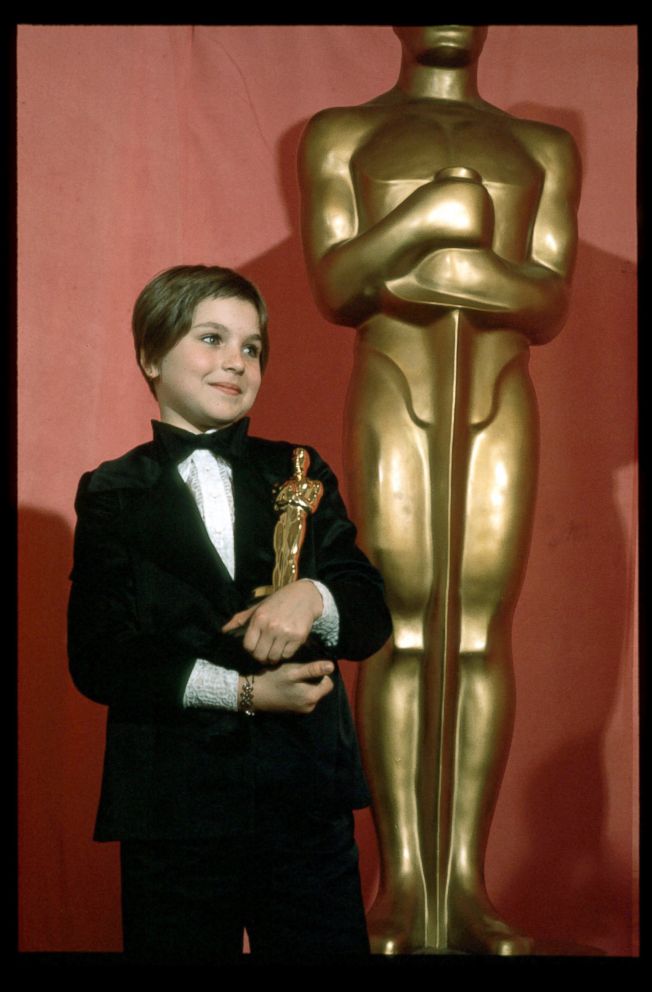
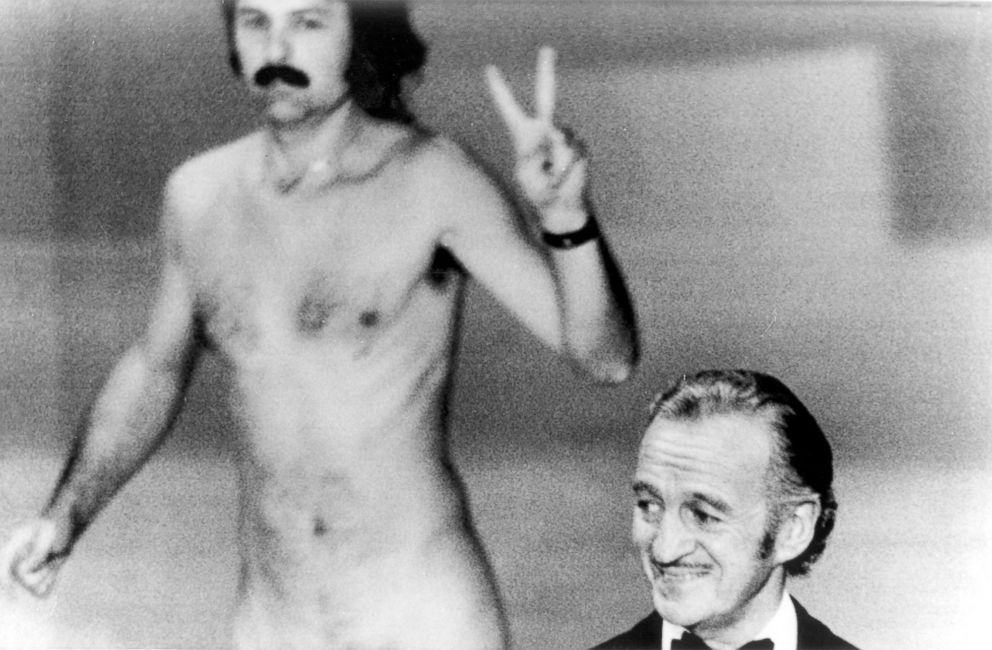
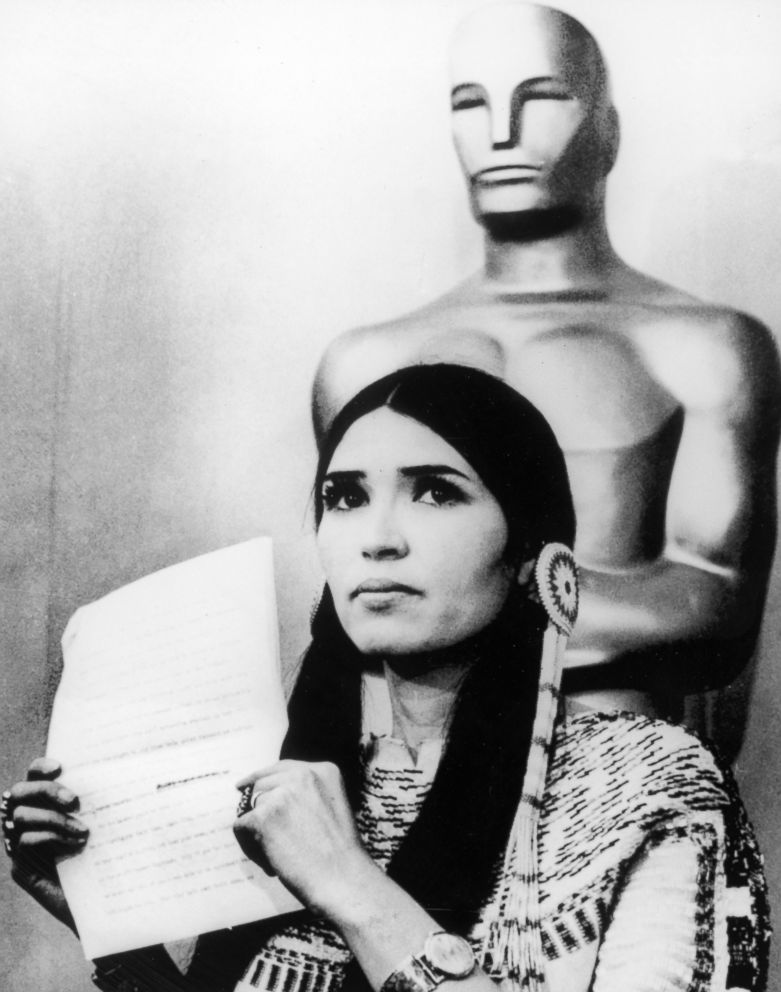
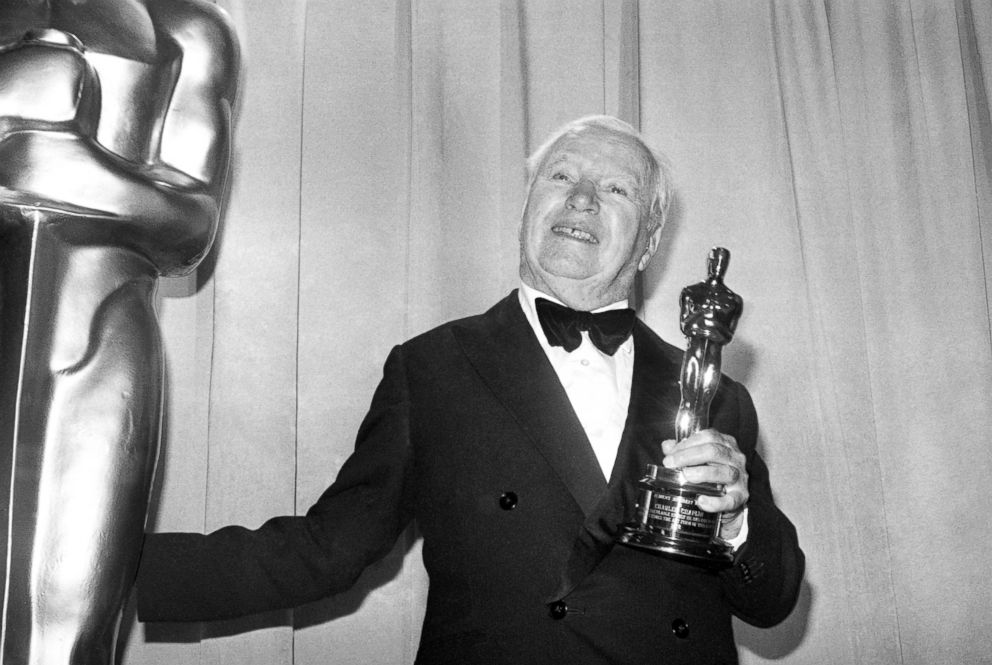
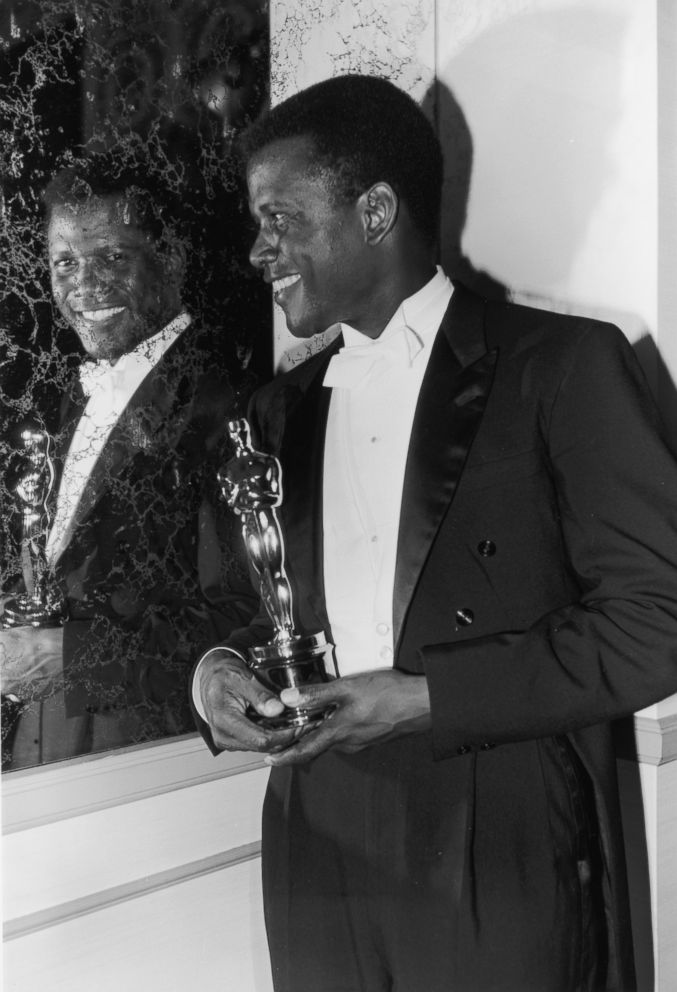
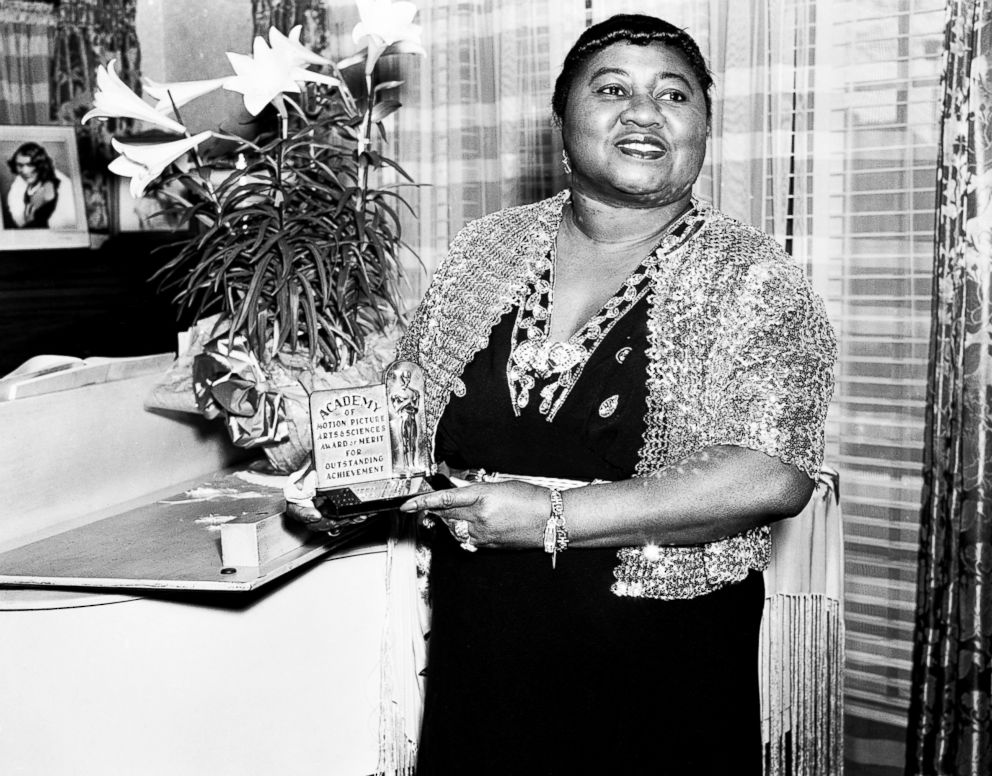
Do political speeches lead to change?
Ted Johnson, senior editor at Variety, said these speeches can ultimately launch various initiatives.
"Presidential administrations are aware of the ability of the Oscars to be a platform," he told ABC News in an email. "Joe Biden introduced Lady Gaga at last year's Oscars as a way to highlight the problem of sexual assault on college campuses. Ronald Reagan addressed the ceremony by video in 1981, and Franklin Roosevelt addressed the Oscars in 1941."
He also gave the example of Patricia Arquette, who won an Oscar in 2015 for "Boyhood." The publicity following her speech on equal pay for women encouraged one California lawmaker to introduce equal pay legislation in the state. It passed later that year, Johnson noted.
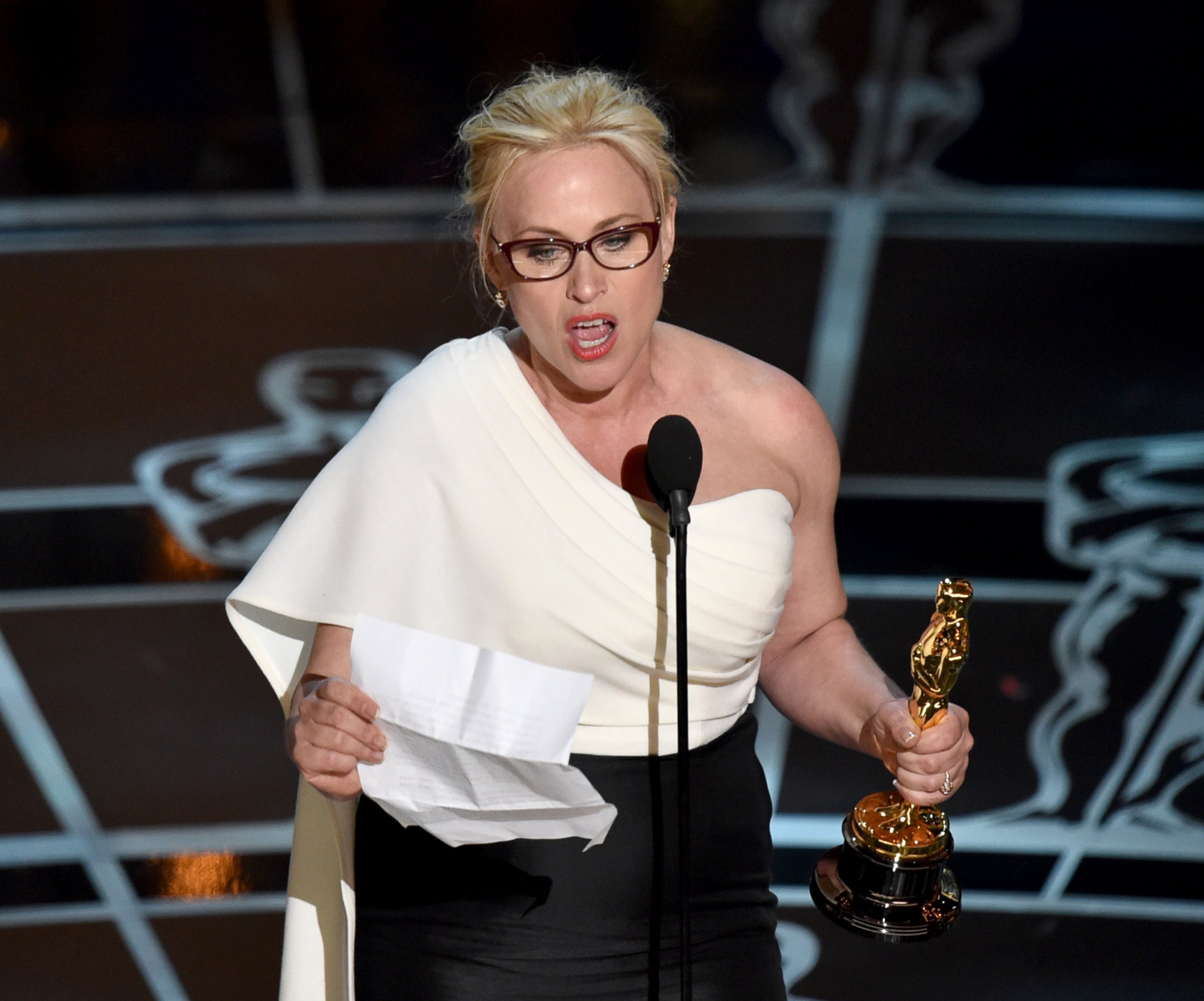
According to Lippit, these speeches "will only have an indirect effect -- on climate change policy, for example -- but they do sometimes have a significant impact on public opinion, which can lead to policy changes."
With 100 million people watching, Travers said, "Would anybody give up the opportunity to get something off their chest? I don't think so."
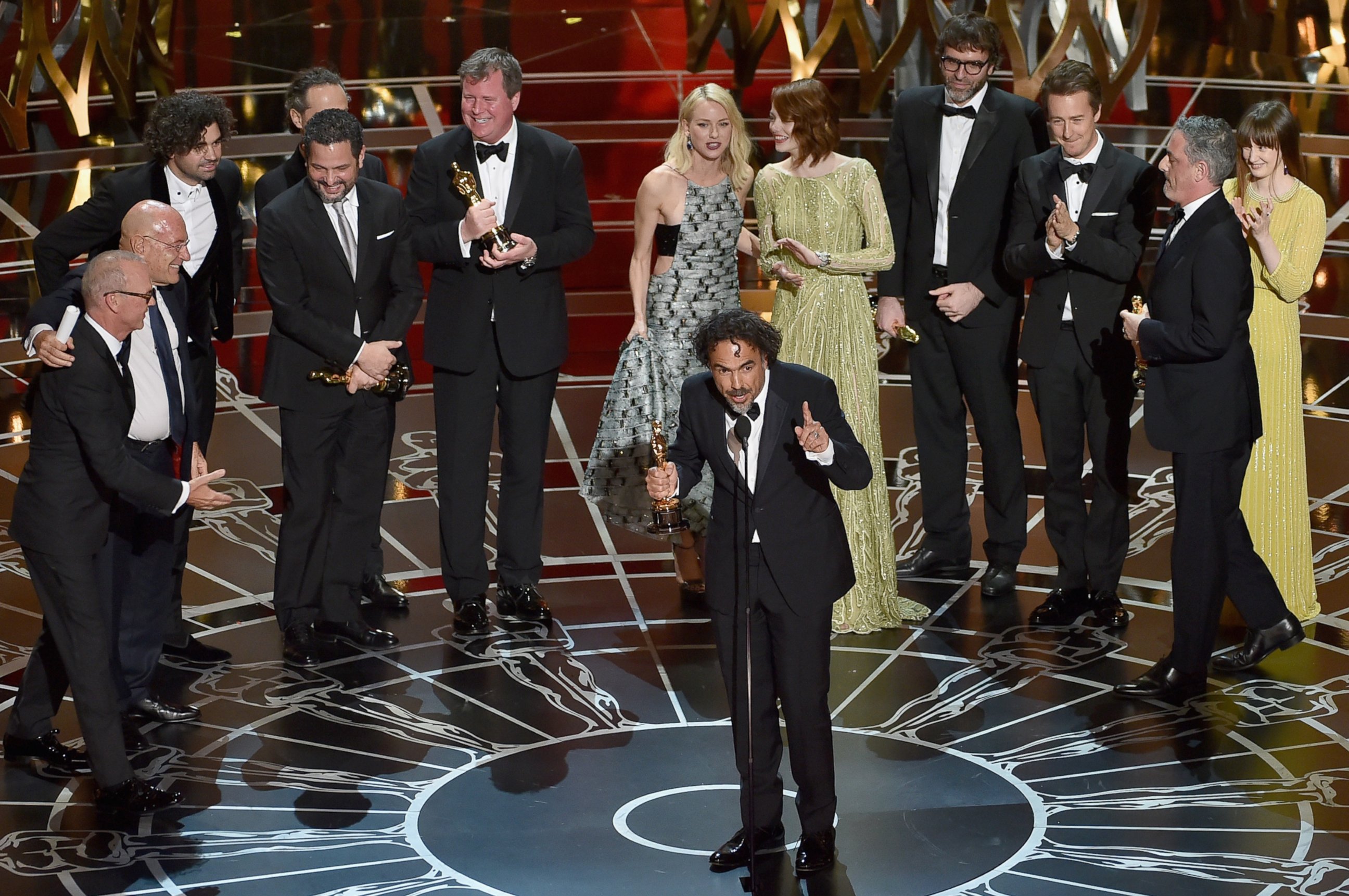
ABC News' Morgan Korn, Jeff Costello, Lindsey Jacobson, Lesley Messer, Veronica Stracqualursi, Stephanie Ebbs and Stacy Chen contributed to this report.